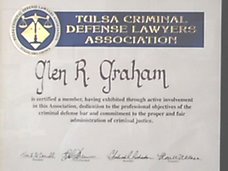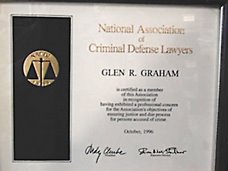Fascinating "holistic" approach to the right against self-incrimination which views the 6th Amendment as part of a "holistic" vision of a right to a fair trial instead of a bundle of disparate rights.
Long before Sir Walter Raleigh and ordinary English men and women were demanding production of an accuser, eventually linking this to the inchoate privilege against self-incrimination. Since they could not invoke the common law, the dissenters fell back on the Bible.
Shortcut to: http://moritzlaw.osu.edu/osjcl/Articles/Volume3_1/Commentary/Graham_3-1.pdf
See: Confrontation Stories: Raleigh on the Mayflower
By: Kenneth Graham* Professor UCLA School of Law and co-author of CHARLES ALAN WRIGHT & KENNETH W. GRAHAM, JR., FEDERAL PRACTICE & PROCEDURE EVIDENCE
"This romantic myth conflicts with some little-known facts—notably that the English common law has never recognized a right of confrontation."
The most popular book in colonial homes was the Geneva Bible, published as its name suggests by exiles from the Marian persecutions. The Geneva Bible carried marginal notes that, among other things, tried to show the contemporary political significance of Biblical passages. King James so feared the Geneva Bible that he ordered preparation of the “authorized version” of the Bible that later bore his name—but bore no marginal notes of political commentary.
In the best known Biblical passage on confrontation, Paul stood accused of sedition so a Roman tribune sent him to the Roman governor and “commanded his accusers to speak before thee [the governor] the things they had against him.” At the hearing, Paul challenged his accusers who had only hearsay knowledge to prove the charges, pointing out that witnesses who had personal knowledge “ought to have been present before thee, and accuse me, if they had ought against me.” At this point, a marginal note underlines the dangers of hearsay: “For his accusers spake but upon a false report, which these bellowers of Satan had blowen abroad, and durst not them selves appear.” Acts 25:16
Two years later when Festus became governor he wrote his superior that Paul’s enemies were still demanding his punishment, adding “[t]o whom I answered, that it is not the maner of the Romaines for favor to deliver anie man to the death before that he which is accused, have the accusers before him, and have place to defend himself, concerning the crime.” (citing Acts 25:16).
The second book of confrontation stories that the colonists carried to the New World was Fox’s Book of Martyrs—a compendium of religious persecution in England and elsewhere. Foxe decried the Spanish Inquisition and other religious persecutions. Though Festus may refer to the Roman form of confrontation, the translator blurs the distinction so as to favor a broader reading by dissenters. For example, John Lilburne used this passage expansively to condemn Star Chamber for treating him worse than the “Pagans and Heathen Romans.”
Confrontation also figures in the noncanonical tale of Jesus and the anonymous woman allegedly caught in an act of adultery. When his enemies brought her before Jesus to force him to choose between his teachings and the Mosaic law, Jesus famously replied, “Let him that is among you without sinne, cast the first stone at her.” The Geneva Bible explains that in casting the first
stones, witnesses “declared that they testified trueth.” So challenged, her accusers slunk off one by one, leaving Jesus alone with the woman. The Geneva Bible continues: “When Jesus had lift up him self againe, and sawe no man, but the woman, he said unto her, Woman, where are those thine accusers? Hathe no man condemned thee? She said, No man, Lord. And Jesus said, Nether do I condemne thee: go and sinne no more.” (citing John 8:9).
First, the right of confrontation is an American innovation, not an import from England. Second, the Founders wanted a right to confront not only the “witnesses” who appeared at trial but the “accusers” who lurked in the shadows. Finally, to “confront” an accuser meant more than cross-examination but a right to a trial of the accusation by procedures that were adversarial rather than inquisitorial. In short, the Sixth Amendment amounts to more than a bundle of disparate rights; it incorporates a holistic vision of a fair trial.
Biblical Authority for the Right Against Self Incrimination as Part of Holistic Vision of Right to Fair Trial
Subscribe to:
Post Comments (Atom)






No comments:
Post a Comment